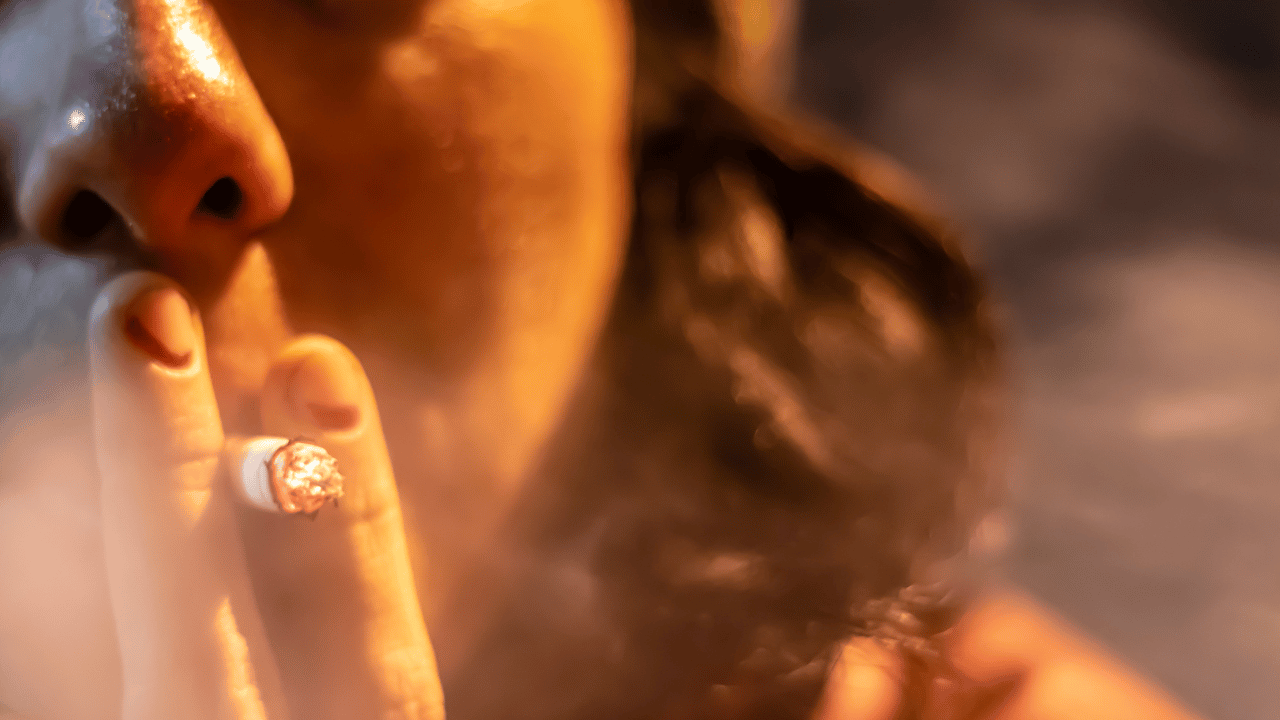Breast milk gives your baby a powerful start—it’s full of nutrients, antibodies, and everything they need to grow strong and healthy. But if you’re smoking and breastfeeding, you might be wondering if it’s still okay to nurse. The truth is, while smoking does carry risks, it doesn’t mean you should stop breastfeeding. In fact, breast milk still offers important protection, even if you smoke. Here’s what you need to know.
What Happens When You Smoke and Breastfeed?
When you smoke, nicotine and other chemicals don’t just stay in your system—they pass into your breast milk. Studies show that nicotine levels in breast milk can be double the levels in your bloodstream. Nicotine peaks in breast milk about 30 to 60 minutes after smoking and takes around 95 minutes to drop by half. So the closer you breastfeed to your last cigarette, the more nicotine your baby may get.
And it’s not just nicotine. Harmful substances like cadmium, arsenic, and lead have also been found in the breast milk of smokers. These trace metals are linked to developmental issues, even in small amounts.
Does Smoking Affect Milk Supply?
Yes. Smoking can interfere with prolactin, the hormone responsible for making milk, and disrupt the letdown reflex. It may also reduce the fat content and overall nutrition in your breast milk. That can lead to early weaning, lower milk production, and shorter breastfeeding duration.
How Smoking Impacts Your Baby
Babies are especially vulnerable to chemicals because their systems are still developing. Nicotine exposure through breast milk has been linked to:
- Increased irritability and less sleep
- Nausea, vomiting, colic, and diarrhea
- Disrupted feeding routines
- Potential thyroid issues and nutrient absorption problems
- Compromised growth and metabolism over time
The Dangers of Secondhand Smoke
Secondhand smoke only adds to the risk. Babies exposed to it are more likely to develop bronchitis, pneumonia, ear infections, sinus issues, and even SIDS (Sudden Infant Death Syndrome). They also face higher risks for stunted development and are more likely to become smokers themselves later in life.

Can You Still Breastfeed If You Smoke?
Yes. And you should. Research consistently shows that breastfeeding is still beneficial, even if you smoke. In fact, breastfed babies of smoking mothers often have fewer respiratory infections than formula-fed babies of smoking mothers. Breast milk contains antibodies and protective nutrients that formula simply can’t match.
So if quitting isn’t something you can do right now, don’t stop breastfeeding. Instead, focus on reducing your baby’s exposure as much as possible.
Tips to Reduce Your Baby’s Exposure to Smoke While Breastfeeding
- Smoke outside, away from your baby, and never indoors or in the car
- Keep your home well-ventilated
- Change your clothes and wash your hands and face after smoking
- Wait at least 90 minutes after smoking before breastfeeding
- Try to smoke right after feeding rather than before
- Don’t breastfeed while actively smoking
- Decrease the number of cigarettes you smoke daily—aim for no more than 10 to 15
Using Nicotine Replacement Therapy (NRT)
If you’re trying to quit, tools like nicotine patches or gum can help. To minimize exposure:
- Use nicotine gum or lozenges after you nurse, not before
- If you’re using a patch, apply it after breastfeeding and consider removing it a while before your next feed
- Never smoke and use nicotine patches at the same time
What About Vaping While Breastfeeding?
Vaping is often seen as safer, but it’s not risk-free. Most e-cigarettes still deliver nicotine and a cocktail of other chemicals that may affect your baby. The effects of these substances in breast milk aren’t fully understood yet. If you’re vaping and breastfeeding, the same precautions apply.
What If You Use Marijuana?
Weed can seem harmless, even natural. But THC—the psychoactive ingredient—is stored in fat and stays in breast milk longer than nicotine. It’s been linked to sedation, poor feeding, weakness, and potential long-term brain development issues. Regular use may also reduce milk production. If you’re using cannabis for medical reasons, speak with a healthcare provider about safer alternatives.
Smoking May Cause Mom to Stop Breastfeeding Sooner
Studies show that mothers who smoke are less likely to start or continue breastfeeding. But that doesn’t mean they care less. Often, it’s because of stress, lack of support, misinformation, or feeling judged. We need to create safe, stigma-free spaces for moms to get honest help and encouragement.
What We Still Don’t Know
There are still unanswered questions about:
- The long-term effects of nicotine in breast milk
- How vaping and marijuana truly affect infants over time
- Whether there is any safe “threshold” for smoking while breastfeeding
More research is needed, but the evidence we have now suggests caution and smart harm-reduction choices.
Conclusion
If you’re breastfeeding and smoking, your baby may be getting more than just milk. But you don’t have to choose between breastfeeding and being a smoker. Breastfeeding still offers major health benefits—even with smoking in the mix.
The best-case scenario is quitting smoking entirely. But if that feels impossible right now, you can still make small changes that make a big difference. Smoke outside. Wait before feeding. Cut back a little each day. Change clothes. Protect your baby where you can. And above all, keep breastfeeding.
You don’t have to do this alone. Talk to your doctor, a lactation consultant, or a support line. You’re doing the best you can—and that matters.
Quick FAQ
Yes. It’s better to breastfeed while smoking than to formula-feed, but minimize exposure as much as possible.
Wait at least 90 minutes. Nicotine levels drop over time, so the longer you wait, the safer it is.
Yes, it can reduce milk production and interfere with the letdown reflex.
Maybe slightly, but it still exposes your baby to nicotine and other unknown substances.
Yes, but only after breastfeeding. Never smoke and use a patch at the same time.
Resources
You’ve got this. One step at a time.
References
- Researchers found that when a mom smokes, the amount of nicotine in her breast milk can actually be more than twice what’s in her blood. In other words, the milk ends up carrying a concentrated dose. BioMed Central
- Nicotine doesn’t leave your system right away. It peaks in your milk pretty quickly after you smoke, and then takes about an hour and a half to cut in half. The longer you wait to breastfeed after smoking, the better. Medical News Today
- Tobacco smoke has been shown to mess with prolactin—the hormone that helps you make milk—and can make it harder for your milk to let down when baby latches. That can lead to less milk over time. PMC
- In one small study, babies whose moms smoked breastfed and then slept for about 30 minutes less than when their moms didn’t smoke. Less rest means fussier babies and more stress for everyone. PMC
- Interestingly, one study found that even when moms smoked, the babies who were breastfed got sick less often than those who were formula-fed. So even if you smoke, breast milk still gives your baby important protection. PMC
- Smoking may affect the quality of your milk, too. Some studies show it can lower the fat content or reduce important nutrients that help babies grow strong and healthy. Wiley Online Library
- Early research suggests that babies who get a lot of nicotine through breast milk might grow faster than expected, which sounds good, but could point to metabolism or thyroid changes that need more study. ScienceDirect
- Lactation pros agree: quitting smoking is best, but if you’re not there yet, don’t stop breastfeeding. Just do what you can to lower your baby’s exposure—like smoking outside, washing up after, and waiting a bit before nursing again. Every little step helps. Australian Breastfeeding Association


